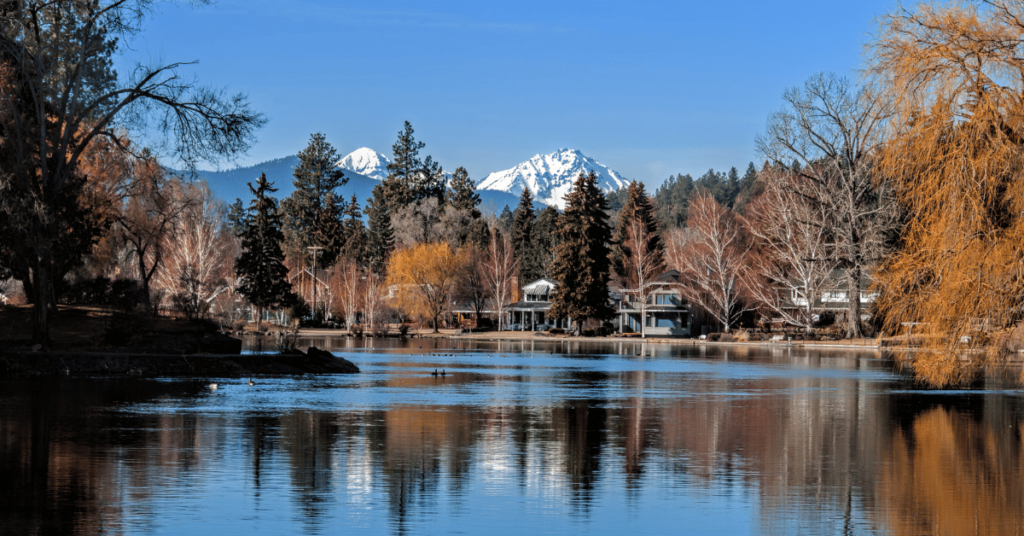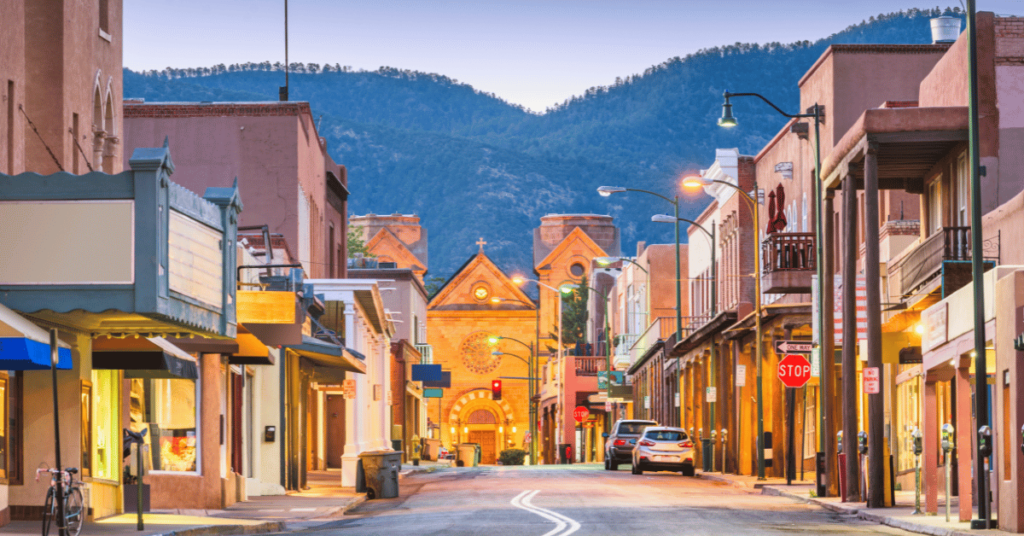Retirement is no longer a one-size-fits-all concept, and many people are breaking away from the traditional idea of working until 65, then settling in a stereotypical retirement community. Non-traditional retirees, whether part of the FIRE (Financial Independence, Retire Early) movement, career shifters, or digital nomads, are seeking retirement destinations that align with their unique lifestyles.
In this article, we’ll explore the best places in the U.S. for non-traditional retirees and what makes each location ideal for those looking to retire on their own terms.
1. Asheville, North Carolina
Asheville has gained popularity for its artistic and cultural vibrancy, combined with an affordable cost of living compared to other retirement hotspots. For non-traditional retirees, especially those looking to stay active and socially engaged, Asheville offers a lively community, outdoor adventures in the Blue Ridge Mountains, and plenty of opportunities for volunteerism or part-time work.
- Cost of Living: Moderate, with affordable housing options and low taxes.
- Outdoor Lifestyle: Hiking, biking, and rivers for kayaking.
- Cultural Scene: Known for its art galleries, music festivals, and farm-to-table dining.
2. Bend, Oregon

Bend attracts early retirees and nature lovers thanks to its access to outdoor activities and its reputation as a haven for digital nomads. The city has embraced flexible and remote work environments, which non-traditional retirees can take advantage of, especially if they plan to work part-time or pursue entrepreneurial ventures.
- Cost of Living: Slightly higher than average, but compensated by the high quality of life.
- Outdoor Adventures: Skiing, hiking, and fishing abound.
- Health and Wellness: Many wellness and alternative health options, including yoga and meditation centers.
3. Austin, Texas
Austin has become a top destination for those in the FIRE community and other early retirees thanks to its low taxes and eclectic culture. The city’s booming tech industry, lively arts scene, and commitment to sustainability make it an excellent place for retirees looking for a balance of work and play.
- Cost of Living: Higher than other Texas cities, but with no state income tax.
- Cultural Hotspot: Live music, film festivals, and an innovative tech scene.
- Entrepreneurship: A strong entrepreneurial spirit, ideal for retirees who want to launch small businesses or freelance.
4. Sarasota, Florida
Florida is a popular state for retirees, but Sarasota offers a different flavor for those seeking an artistic and intellectual retirement. Known for its vibrant arts community, Sarasota is home to cultural institutions like the Sarasota Opera and the Ringling Museum of Art. Its beautiful beaches and warm climate make it an ideal spot for those wanting the traditional sun-and-sand lifestyle, but with a modern twist.
- Cost of Living: Moderate, with a variety of housing options.
- Cultural Engagement: Many cultural festivals, museums, and galleries.
- Warm Weather: A classic Florida advantage for beach lovers.
5. Santa Fe, New Mexico

For those who value creativity and independence, Santa Fe offers a unique blend of southwestern culture and a laid-back lifestyle. Known for its art galleries, museums, and historic architecture, this city is perfect for retirees who want to immerse themselves in a rich cultural environment while enjoying a slower pace of life.
- Cost of Living: Affordable, with an emphasis on quality of life over luxury.
- Arts and Culture: Art walks, music festivals, and a thriving gallery scene.
- Spiritual Community: A welcoming place for those exploring mindfulness or alternative spirituality.
6. Greenville, South Carolina
Greenville combines low living costs with an active lifestyle, making it ideal for non-traditional retirees who want to stretch their dollars without sacrificing quality of life. The city offers a mix of outdoor activities, a growing arts scene, and mild weather, perfect for retirees looking to stay active year-round.
- Cost of Living: Very affordable, with low property taxes.
- Outdoor Access: Parks, hiking trails, and a walkable downtown.
- Booming Economy: A strong job market for those looking for part-time or freelance opportunities.
7. Boise, Idaho
Boise is an under-the-radar destination that offers an excellent quality of life at a relatively low cost. The city has become a magnet for people looking to escape the hustle and bustle of larger cities, making it ideal for non-traditional retirees who still want access to modern amenities but with a slower pace of life.
- Cost of Living: Lower than many western U.S. cities, with affordable housing.
- Outdoor Activities: Hiking, skiing, and white-water rafting.
- Cultural Scene: Growing arts community, food festivals, and local markets.
Conclusion
Non-traditional retirees have unique needs and goals, which means finding the right retirement destination is key. From artistic hubs like Asheville and Santa Fe to outdoor meccas like Bend and Boise, there’s a wide range of places in the U.S. that cater to those looking for more than the traditional retirement experience. Each city offers something special, whether it’s affordability, culture, or access to nature, ensuring you can create a retirement that aligns with your values and lifestyle.
If you have any further questions feel free to comment down below or contact retiresmart for any help!
FAQs
1. What is a non-traditional retiree?
A non-traditional retiree is someone who chooses to retire earlier than the typical retirement age, often in their 30s, 40s, or 50s. They might follow the FIRE (Financial Independence, Retire Early) movement or simply choose to shift careers, work part-time, or pursue creative or entrepreneurial ventures during retirement.
2. What factors should non-traditional retirees consider when choosing a retirement destination?
Non-traditional retirees should consider cost of living, access to healthcare, community engagement, and opportunities for part-time work or entrepreneurial pursuits. Climate and proximity to outdoor or cultural activities may also be important factors, depending on personal preferences.
3. Are there tax benefits for retiring in certain states?
Yes, many states like Florida and Texas have no state income tax, making them attractive for retirees. Other states may offer favorable tax policies on pensions, Social Security, or retirement account withdrawals.
4. Can non-traditional retirees still work part-time in retirement?
Absolutely. Many non-traditional retirees choose to work part-time to supplement their retirement income, pursue passion projects, or stay active. Cities with strong job markets or a high level of freelance and entrepreneurial opportunities may be especially attractive.
5. How does healthcare factor into retirement location decisions?
Healthcare is a critical factor for retirees of any age. Non-traditional retirees, especially those retiring before Medicare eligibility at age 65, need to consider the cost and availability of healthcare in their chosen location. Access to good medical care and affordable health insurance options are key considerations.




